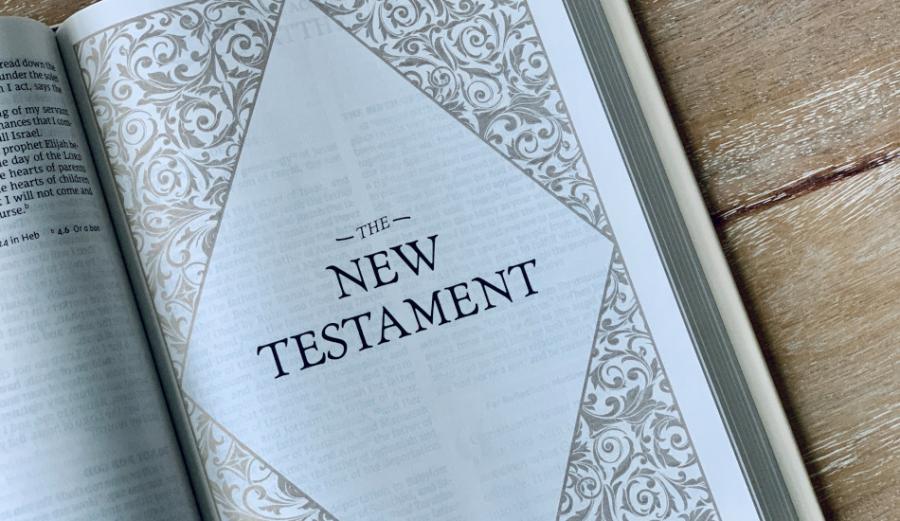Covenant Connections in Paul (Part 1)
Image

Read the series.
From the time of Paul’s dramatic conversion in Acts 9 he was called to represent Yahweh to the Gentiles. Yet he never forgot his people. He would often begin a stint in a city by going into the synagogues and expounding Christ to the Jews (e.g., Acts 13:14; 14:1; 17:1-3). Although he did not write systematic expositions, Paul’s occasional letters He is the qualify him as the greatest theologian of the Christian Church. His thought is profound and multilayered, and I cannot do it justice here. My interaction with Paul is more modest. I am interested in the investigation of how the covenants of God affected his thought. And I am also interested in how he understood the doctrine of the Church against the background of the OT covenants, and the role the Person of Jesus Christ plays in that understanding.
Paul As an Apostle of the Covenant(s)
Like the other NT writers Paul does not speak explicitly about the biblical covenants in very many places. Having said that, the presence of covenant language is easy to find, and the influence of the covenants is not hard to detect. One has only to consider the following examples to see this clearly:
And we have such trust through Christ toward God. Not that we are sufficient of ourselves to think of anything as being from ourselves, but our sufficiency is from God, who also made us sufficient as ministers of the new covenant, not of the letter but of the Spirit; for the letter kills, but the Spirit gives life. (2 Corinthians 3:4-6, my emphasis)
And this I say, that the law, which was four hundred and thirty years later, cannot annul the covenant that was confirmed before by God in Christ, that it should make the promise of no effect. (Galatians 3:17)
For these are the two covenants: the one from Mount Sinai which gives birth to bondage, which is Hagar— for this Hagar is Mount Sinai in Arabia, and corresponds to Jerusalem which now is, and is in bondage with her children— but the Jerusalem above is free, which is the mother of us all. (Galatians 4:24-26)
I shall of course be examining these and other scriptures in due course but permit me to point to one or two matters as we begin. In 2 Corinthians 3 (A.D. 56) Paul tells us that he comprehends his ministry in terms of the New covenant, and in true New covenant fashion he highlights the work of the Spirit in this ministry. In Galatians 3 he refers to “the [Abrahamic] covenant that was confirmed before [the Law] by God in Christ.” While in Galatians 4 he speaks of the symbolism of two covenants (the one signified by Ishmael and the bondage to the flesh, the other signified by Isaac and the freedom through the grace promise) the promise of the covenant with Abraham (which Ishmael was not party to) transcended the requirements of the Law.
In treating the Epistles of Paul, I have decided to follow a thematic scheme rather than a chronological scheme. My reason for this is that I want to treat Paul as an author like I have treated Luke or Isaiah. I am not of the opinion that the inspired Apostle once thought one way and ten or so years after thought differently. To say it in another way, I do not believe that the inspired letter to the churches in Galatia (c. A.D. 48-50) evinces a less mature theological mind than we find in Romans (A.D. 56) or in 2 Timothy (c. A.D. 65). We are talking about a mere fifteen years after all, and the occasional nature of Paul’s correspondence does not allow enough data to theorize about the state of his doctrine by comparisons of his letters one with another. The same holds true for Paul in the book of Acts; there is but one theology of Paul, not a naïve theology and a mature theology.
I should also say that I am not impressed with the insistence of many modern critical scholars, like N. T. Wright and J. Christian Beker, who urge upon us an “apocalyptic Paul.” By this term they have in mind Paul’s doctrine of God’s radical intervention into world affairs through His resurrection and the new birth and then with His second coming. For reasons I have gone into elsewhere I reject using the notion of apocalyptic in this way, for it always ends up getting in the way of what the text is saying. So for example, we end up with an “apocalyptic gospel,”* not a straight Gospel with natural teleological and eschatological elements.
What I want to try to show is that Paul thought covenantally. Again, I need to say that because Jesus Christ had come, He takes the limelight, but the covenants are never forgotten. God’s covenants, especially those with Abraham and David always undergirded the message. It’s time to turn to the covenants in Paul.
* E.g., Anthony C. Thiselton, The Living Paul: An Introduction to the Apostle’s Life and Thought, Downers Grove, IL: IVP, 2009, 17.
Photo by Tim Wildsmith on Unsplash.
Dr Reluctant Articles
Reposted from Dr. Reluctant.
Paul Henebury Bio
Paul Martin Henebury is a native of Manchester, England and a graduate of London Theological Seminary and Tyndale Theological Seminary (MDiv, PhD). He has been a Church-planter, pastor and a professor of Systematic Theology and Apologetics. He was also editor of the Conservative Theological Journal (later Journal of Dispensational Theology). He is now the President of Telos School of Theology.
- 225 views


Discussion